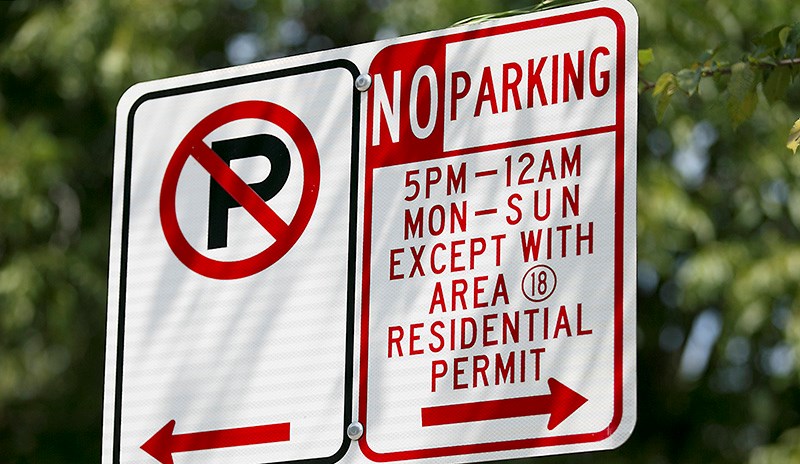Port Moody residents who live in multi-family buildings close to the city's two SkyTrain stations won’t have to pay to park on the street in their neighbourhood.
For now.
At its meeting Tuesday, Port Moody council declined to implement a permit parking program for residents who live in the 3,746 multi-family units in close proximity to the Inlet Centre and Moody Centre Evergreen Extension stations. Instead, it asked staff to research a simpler and less costly system than the one recommended by a staff report.
In that report, the city’s transportation planner, Mark Halpin, recommended a permit system based upon matching vehicle registration with a resident’s Port Moody address to confirm they live within the area covered by the Evergreen parking management plan. Eligible residents would then be issued a decal to be affixed to the vehicle, which could then be parked on the street in the area for up to 72 hours. The permit would cost about $82 annually and would have to be renewed at city hall every January.
In his report, Halpin said he based the fee on recovering the costs of administering the program, maintaining a database of registered vehicles and buying a vehicle licence recognition system to be used by bylaw officers to enforce the regulations, as well as producing the decals and replacing signs to reflect the new parking regulations. He estimated the permit program would cost $245,500 over four years and about 20% of residents in the affected area would purchase permits.
But several councillors questioned whether an expensive licence recognition system that can cost $30,000 to acquire and up to $5,000 a year to operate is necessary if residents' cars require a decal.
“Surely, if you don’t have decals, you don’t need licence plate recognition,” Coun. Rob Vagramov said, adding the permit fee amounts to an additional tax on residents in very specific parts of the city.
Coun. Diana Dilworth said permitting street parking could open a hornet’s nest by allowing residents of multi-unit buildings to purchase a permit for what amounts to an additional parking spot at a much lower cost than getting one in their building.
“It concerns me we’re going to give them year-round parking on the street for $82,” she said.
Other councillors said basing the permit system on vehicle registration also excludes residents who may be driving a company vehicle that is registered to a business address outside the designated area, as well as out-of-towners who may only be living in the city temporarily. It could also make parking for businesses and visitors even harder to find.
“We’re encouraging more people to park in the street and that forces visitors to park even farther away,” Dilworth said.
Even Mayor Mike Clay, who got the ball rolling on the permit parking proposal after he submitted a report to council last June about parking issues around transit stations, conceded implementing a permit system could create a black market in which residents who don’t need parking buy permits to then resell them.
“The concerns are real that somebody has a tag and sells it, and all of a sudden, Craigslist is full of parking tags,” he said. “Are we actually creating a problem we never really had in the first place?”



